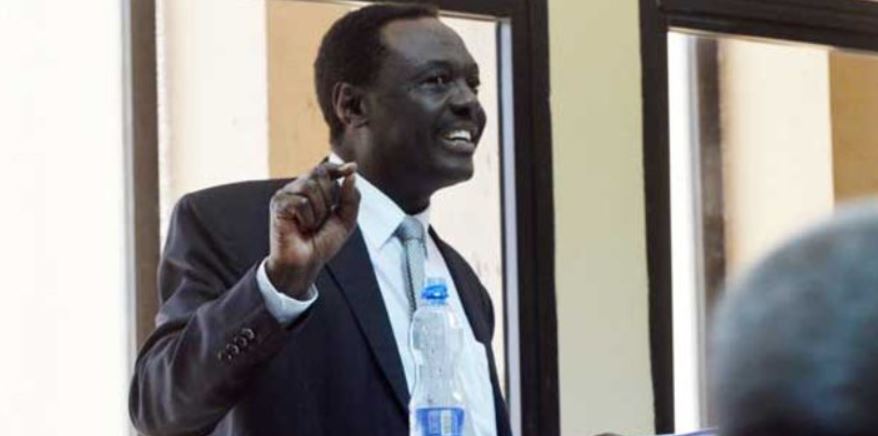
What step has your institution taken to make sure that the courses offered to public servants help in service delivery? Andrew Maranga Ratemo, Nairobi
We draw our mandate from the Kenya School of Government Act as well as the Kenya Vision 2030 development agenda.
We execute this responsibility through training to fill identified competency requirements, expert consultancy services, research intended to inform the policy process, and technical advisory to strengthen decision making.
We offer these services to ministries, county governments, state corporations, commissions, the Judiciary and parliament.
Our programmes cater for public officers at all levels, from the lowest to the highest. Higher-level programmes seek to strengthen leadership, policy-making and strategic envisioning; middle-level programmes focus on competency development for managerial duties and responsibilities, while support for lower and frontline officers is aimed to enhance skills for improved operations.
The process of identifying the capacity needs and subsequent formulation of appropriate capacity development programmes is carried out jointly between KSG faculty and representatives of the public service organisations.
On job training of senior government officials is primarily intended to help them effectively manage public agencies. However, corruption, misuse of public funds, illegal hiring of personnel and laxity at the workplace remain vices many practice. What is KSG not doing right? Dan Murugu, Nakuru City
KSG’s mission is to help public service officials uphold principles of good governance that include high-level of efficiency, expertise, goal attainment, citizen-centered and prudent and honest utilisation of public resources.
Towards this end, KSG has established the Institute for Public Service, Ethics and Values to provide focused attention in the problem area.
So far, the school has, with support from USAID, designed and rolled out three programmes on the promotion of ethics and integrity, each customised to the frontline, managerial and policy making levels of the public service, respectively. Further, the school has mainstreamed a module on public service ethics and integrity in each of the 180 programmes it runs.
Delivery of these programmes and modules is a shared responsibility between KSG faculty and experts from EACC, the Controller of Budget and Office of the Auditor-General.
While there is noticeable room for improvement in compliance with required standards of public service ethics and values in some quarters, much progress is discernible in the performance of public officials.
The school is now following up on aspects of ethics and integrity in which sections of the public service may be lagging behind to provide capacity support for more focused behavioural adjustment.
Due to heightened insecurity and the ever-rising water levels of Lake Bogoria, the KSG facility in Baringo County is not ideal for learning. Why can’t you relocate the institution to safer places like Nakuru or Eldoret? Dan Murugu, Nakuru City
Lake Bogoria is situated at an altitude of 990 metres above sea level, whereas the Kenya School of Government, Baringo Campus is safely located in Kabarnet town, some 75 kilometres away and at a high altitude of 2,053 metres above sea level.
The only significance of the shoreline of the lake to faculty and course participants at the Baringo campus is that it offers a live case study in the vagaries of climate change and the imperative of climate change mitigation measures that is a component of KSG curricula.
In respect of security, Kabarnet is the headquarters of Baringo County and I confirm that this serene town is free of any form of insecurity.
The entire western Kenya is poorly served by KSG. Trainees from the area have to travel to Nairobi for training. Can this change? Mary Shikanda, Vihiga
KSG has five campuses spread in different parts of the country – two at the Coast and Nairobi, Central and North Rift have one each.
However, some 14 counties in western, Southwestern and lower Rift regions do not have a KSG campus thus officers have to travel to Baringo or Nairobi campuses or KSG faculty travel to the region to offer training in hotels leading to higher costs.
KSG has reached out to county governments to offer land on which campuses could be set up. I am pleased to report that Vihiga County has transferred a parcel of land to the school and Kisumu is considering transferring another.
The State Department for Public Works has already conducted feasibility studies and submitted the necessary technical documentation for possible commencement of works that will make the envisaged KSG campus in the region a reality.
What does your position as the President of the African Management Development Management Institutes Network (AMDIN) mean for KSG and Kenya? Matthew Njoroge, Nairobi
I was privileged on behalf of Kenya to be elected President of AMDIN some six months ago. The objective of AMDIN is to promote the shared interests of African Schools of Government that are members of the network.
Towards this end, we have initiated a training curriculum on public service values and principles of government in partnership with the African Union.
We have since trained faculty from member institutions to be able to deliver the programme in their respective countries. KSG faculty have undertaken this training in Lesotho and later in Dar es Salaam and are now ready to roll out the programme at KSG.
In addition, active participation in AMDIN activities and programmes has enhanced the profile of the school on the continent and made it easier for public servants from other African countries to come for training programs at KSG.
KSG being a government institution, many expected the training fees you charge to be pocket friendly. Why are your fees exploitative to struggling public servants? Komen Moris, Eldoret
The school charges tuition and hospitality fees for all training programmes since we operate a business model whereby our expenditure requirements have to be met from internally generated revenue.
Nevertheless, we have set fees through a comparative process in which we made a decision to charge lower than other service providers on account of our statutory obligation and moral duty to transform the public service as quickly as we can.
For example, full board services are offered from Sh3,000 to Sh6,000 depending on client’s own preference of standard of service, while tuition fees average Sh40,500 for a six-week senior programme. Most participants are sponsored by their institutions.
There are reports that corruption has in turn infiltrated your campuses as demand for services grows. What are you doing to curb this? Komen Moris, Eldoret
The responsibility of the school as the chief trainer for the public service in Kenya is to be a role model institution with exemplary performance and conduct.
Therefore, if there are lapses in our standards of integrity and ethics, we will respond decisively. Just let us know.
Somehow, KSG has been scandal-free for decades. What is the secret? Githuku Mungai, Nairobi
Council, management and staff of the Kenya School of Government have taken deliberate and purposeful measures to develop a uniquely KSG culture whose hallmarks are professional responsibility, honesty, and aspiration to be second to none.
KSG has been hosting visiting foreign dignitaries, including former Estonian President Kersti Kaljulaid. What makes KSG attractive to such dignitaries? Seth Mulwa, Nairobi
KSG has hosted heads of state and other local and international dignitaries. At the risk of engaging in self-praise, let me say that many who have visited the school are always surprised that a government institution could excel beyond what is said to be a preserve of private sector entities.
I suppose we owe a lot to the distinguished dedication of KSG staff, the hard-working council of the school and support from the Cabinet Secretary Margaret Kobia, the PS Mary Kimonye and all ministries, agencies and counties that have confidence in the work that we do.








